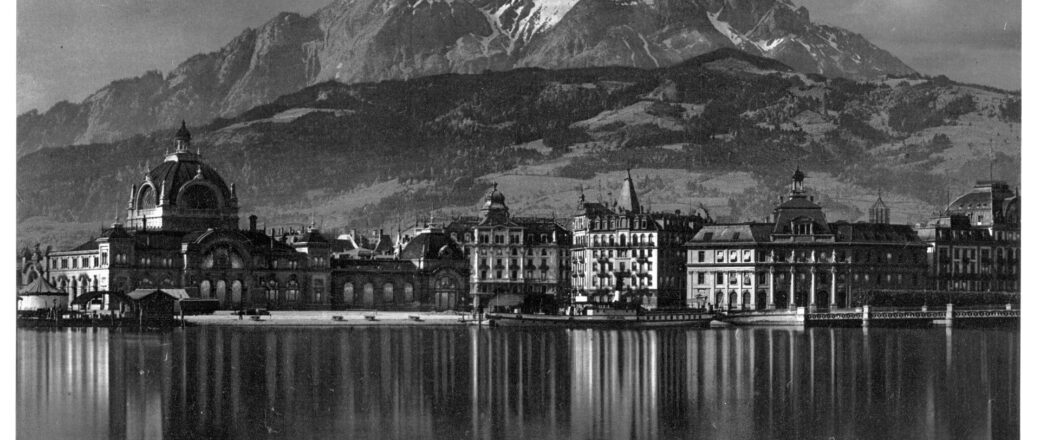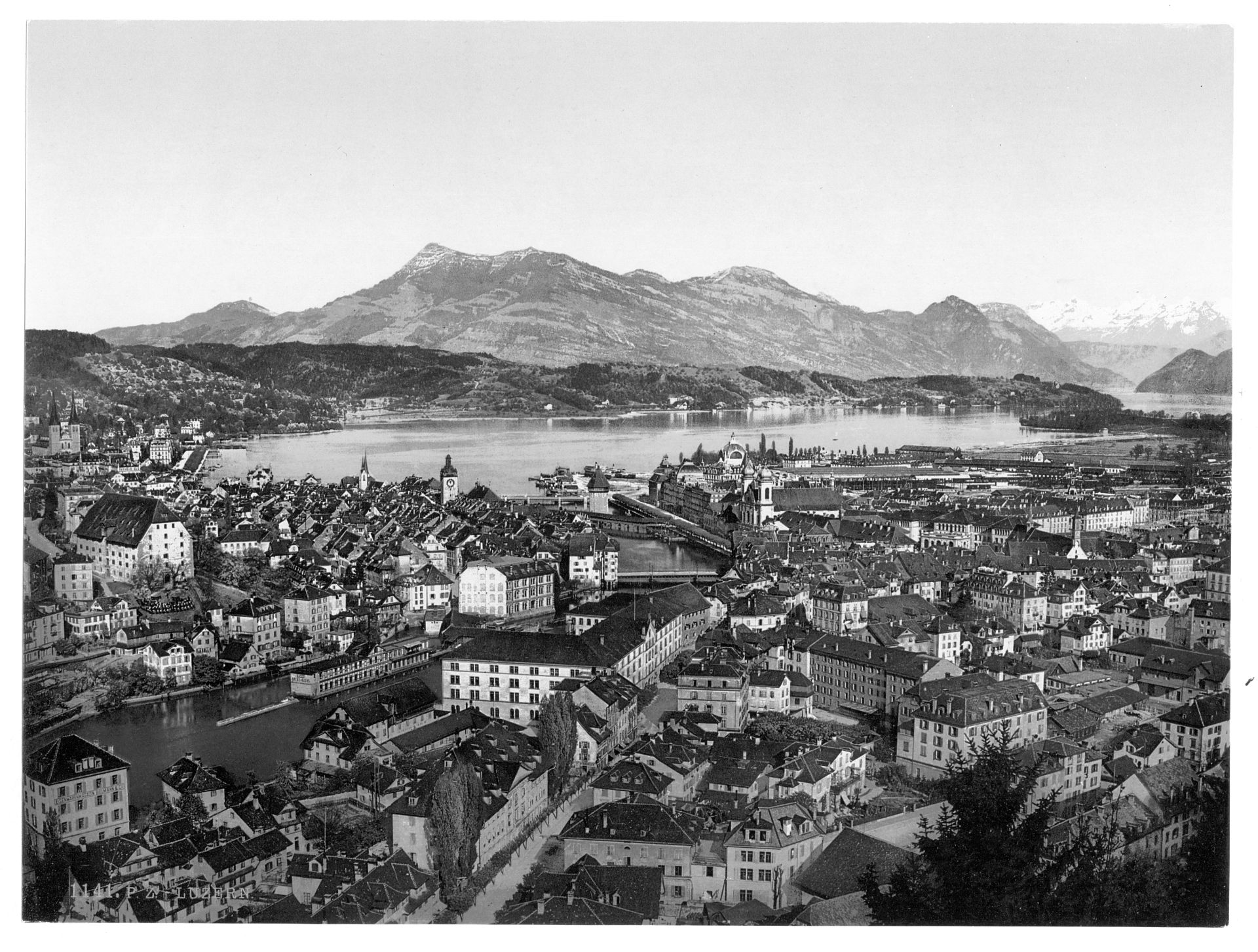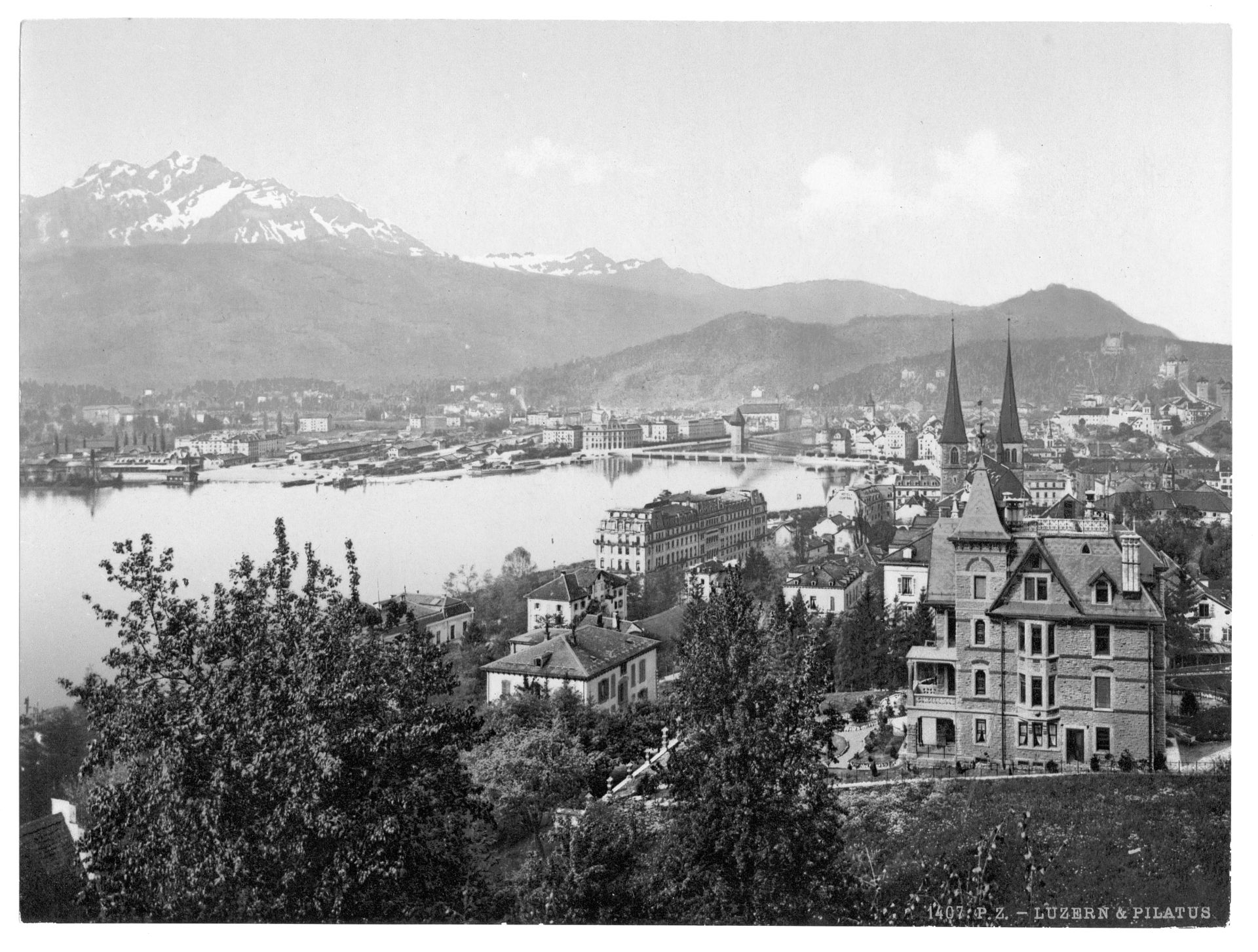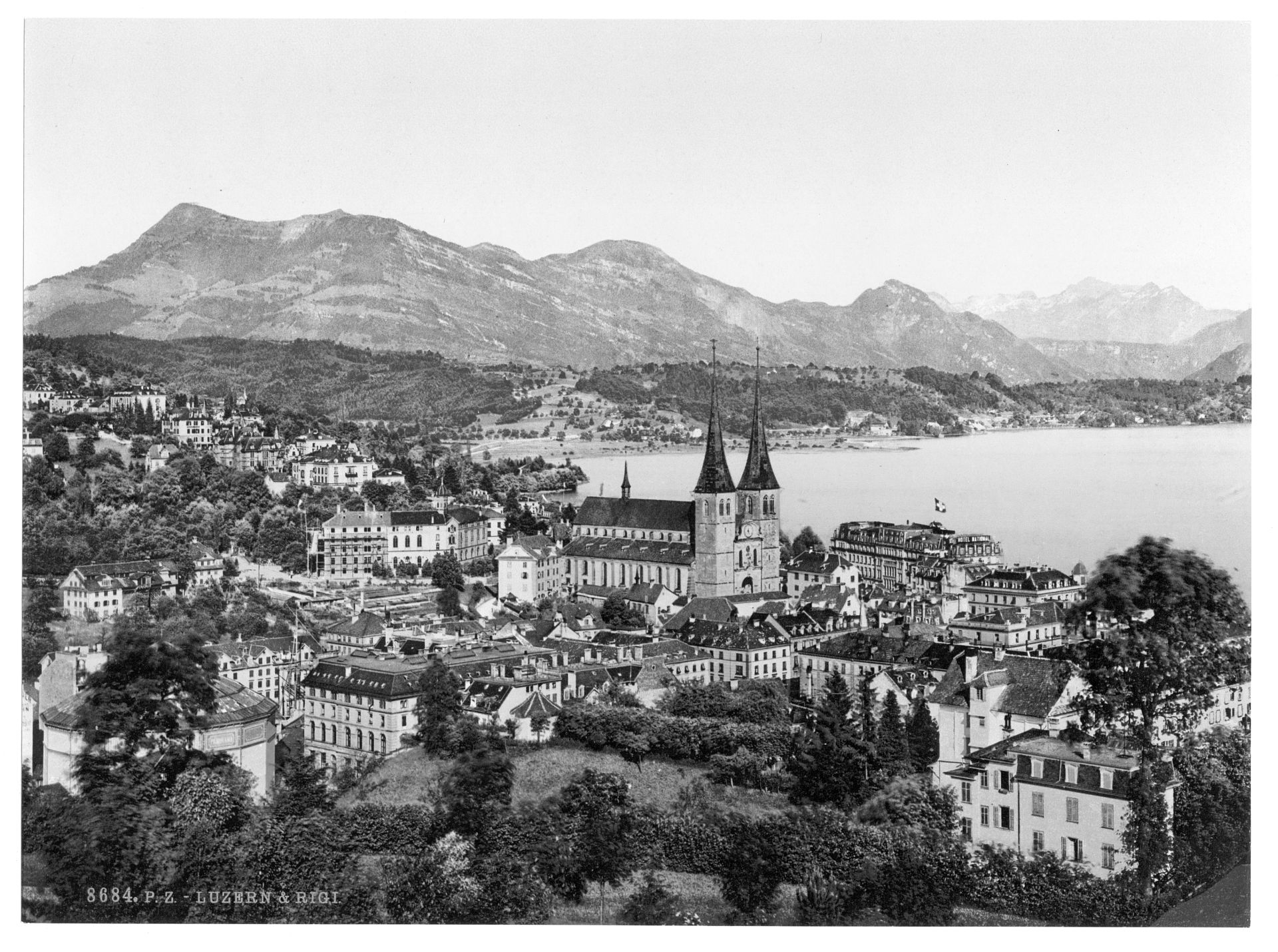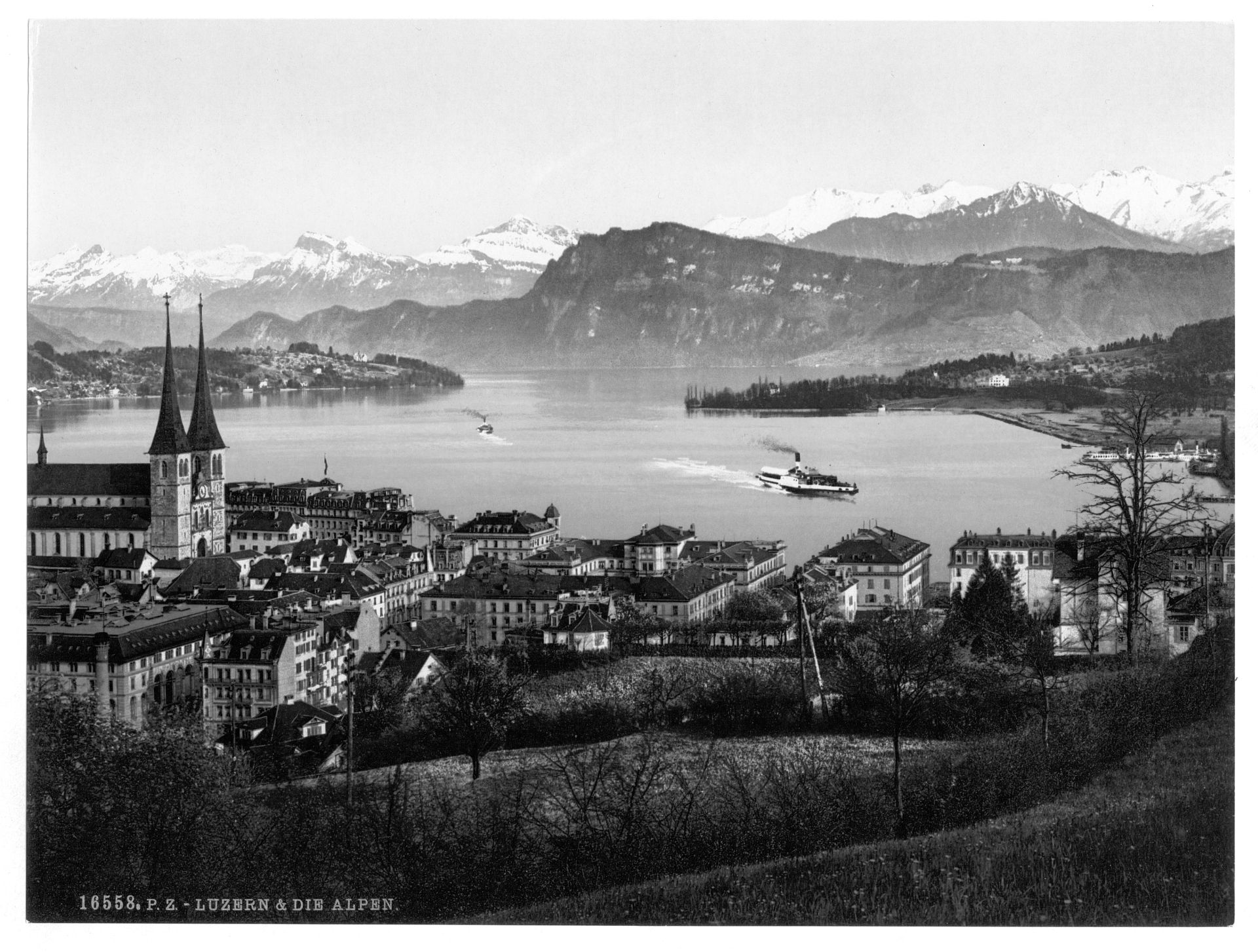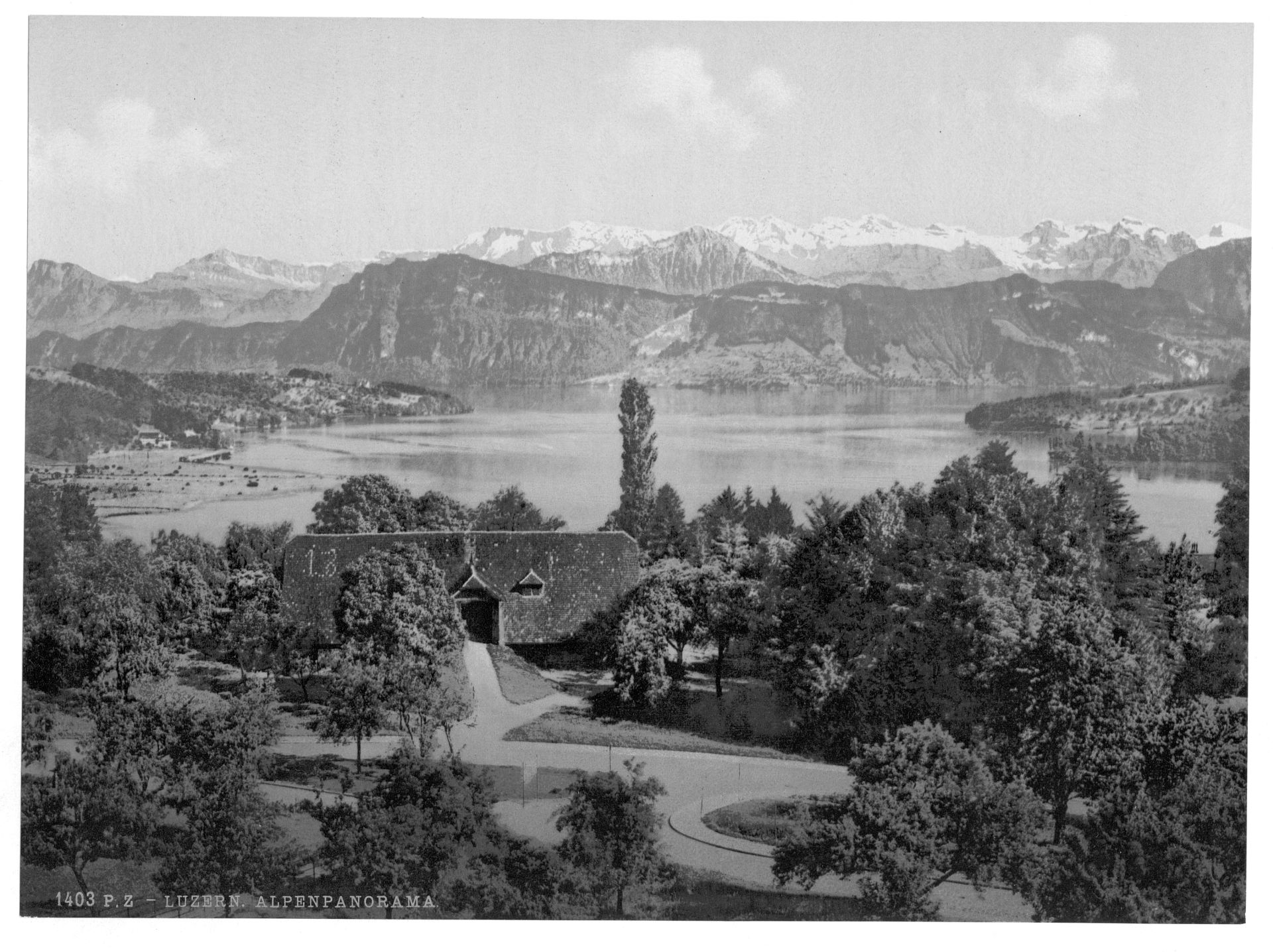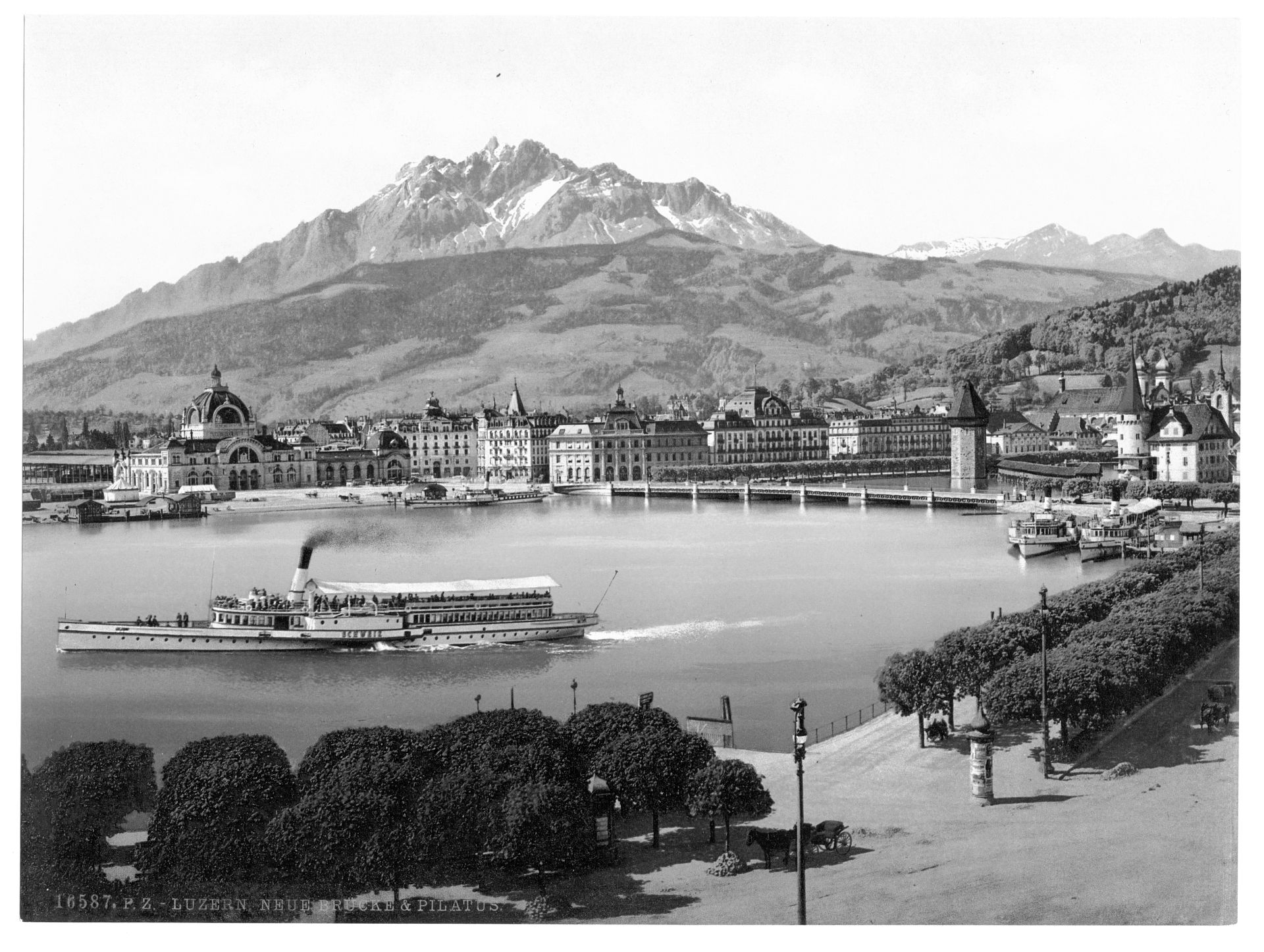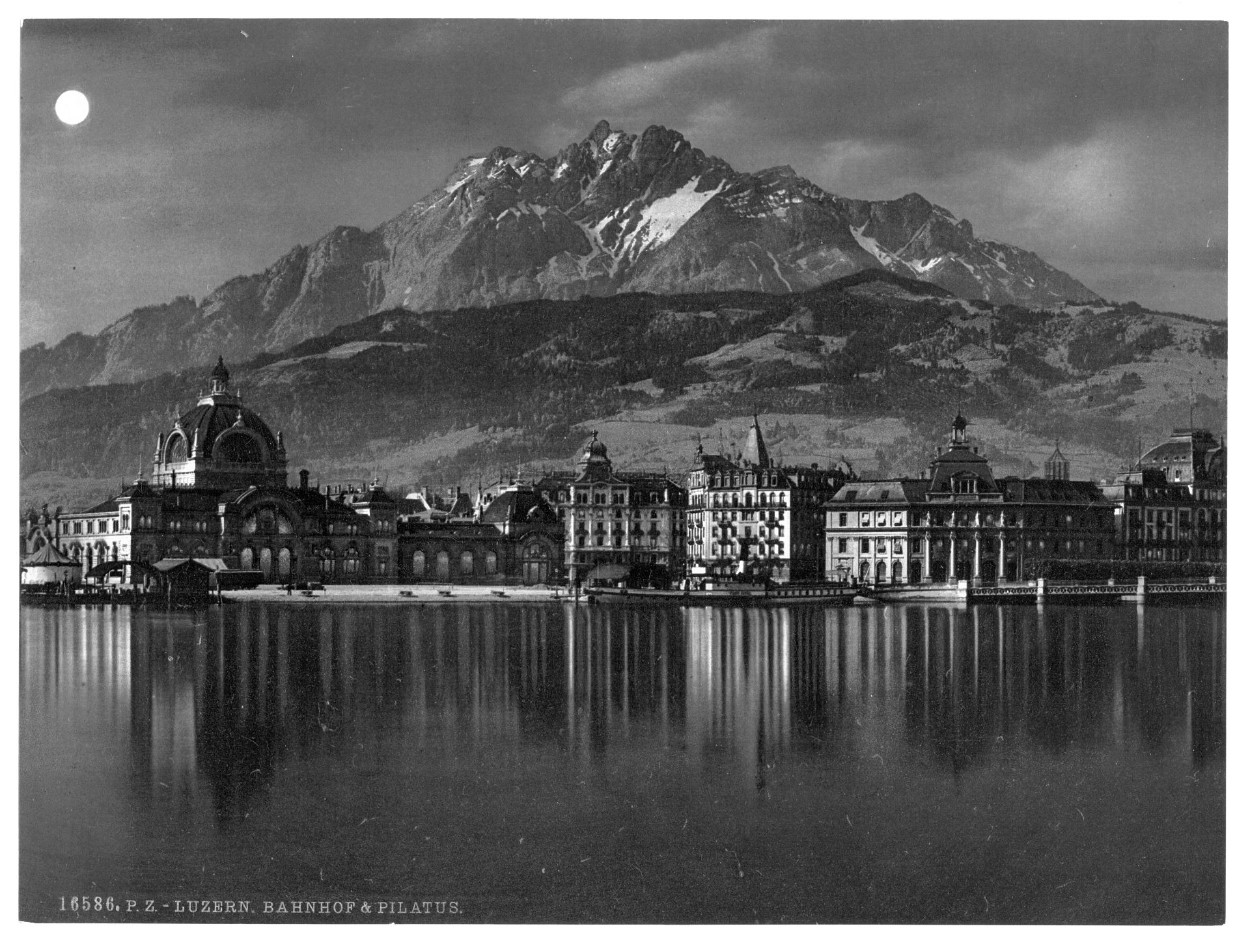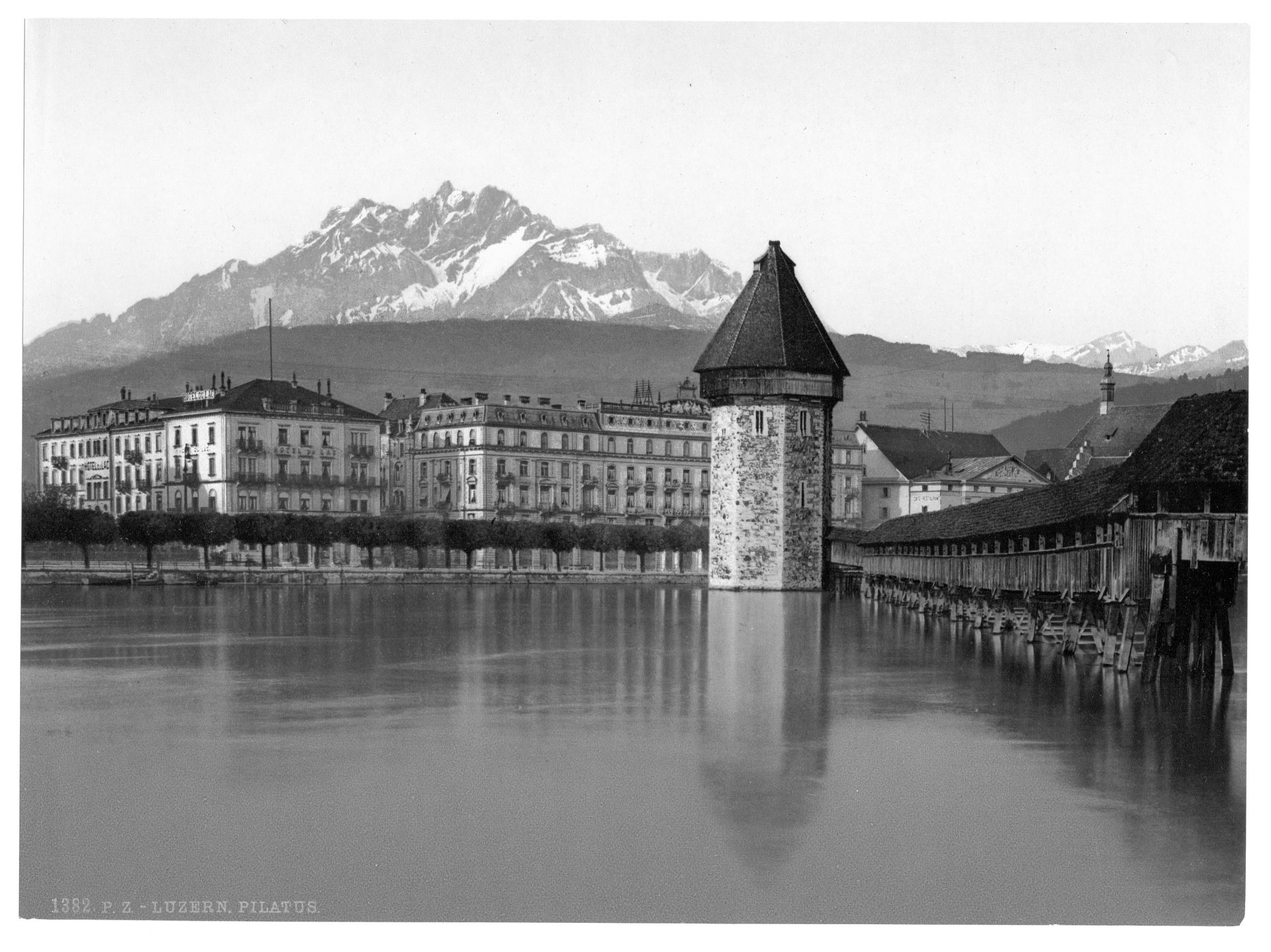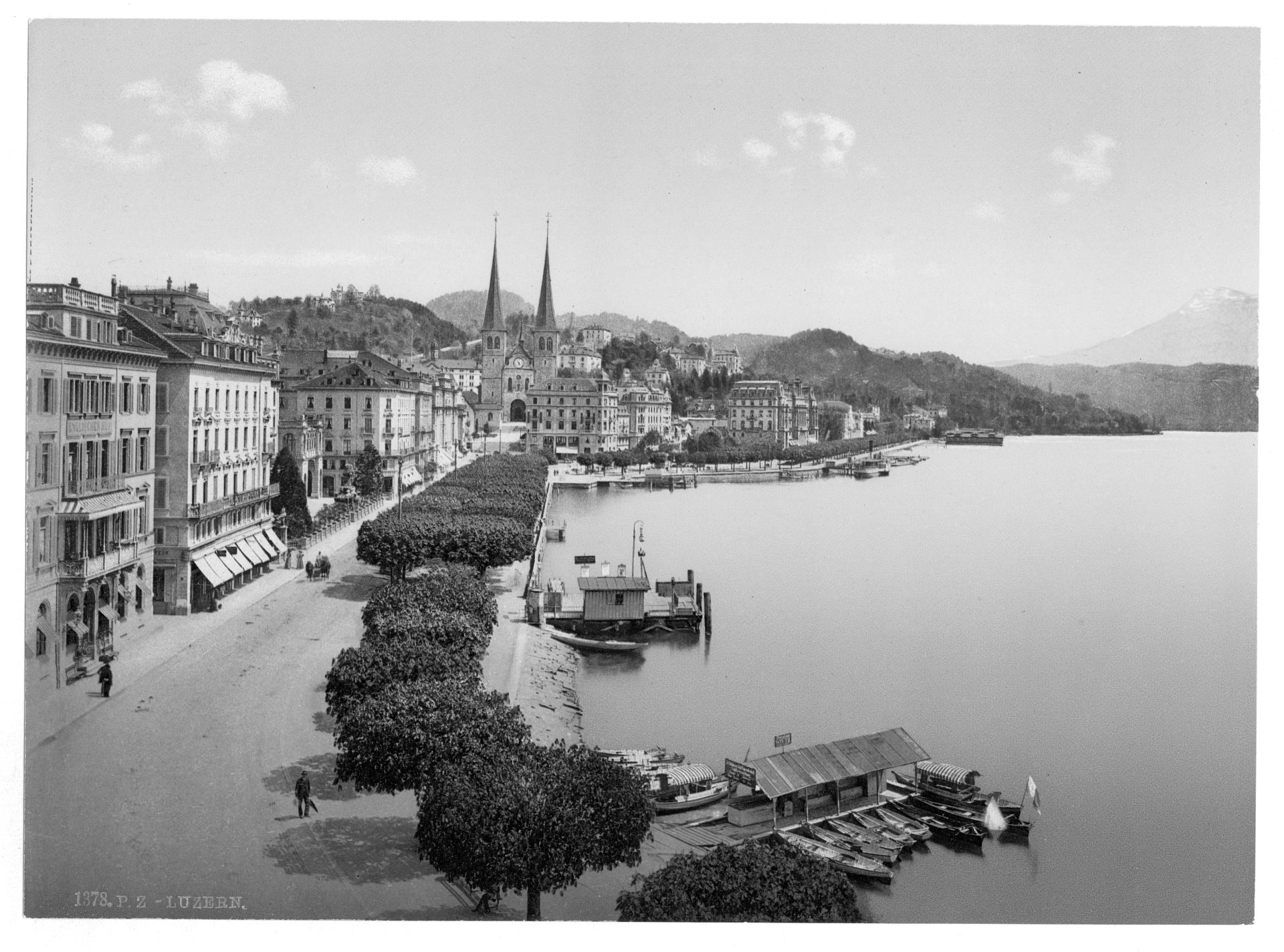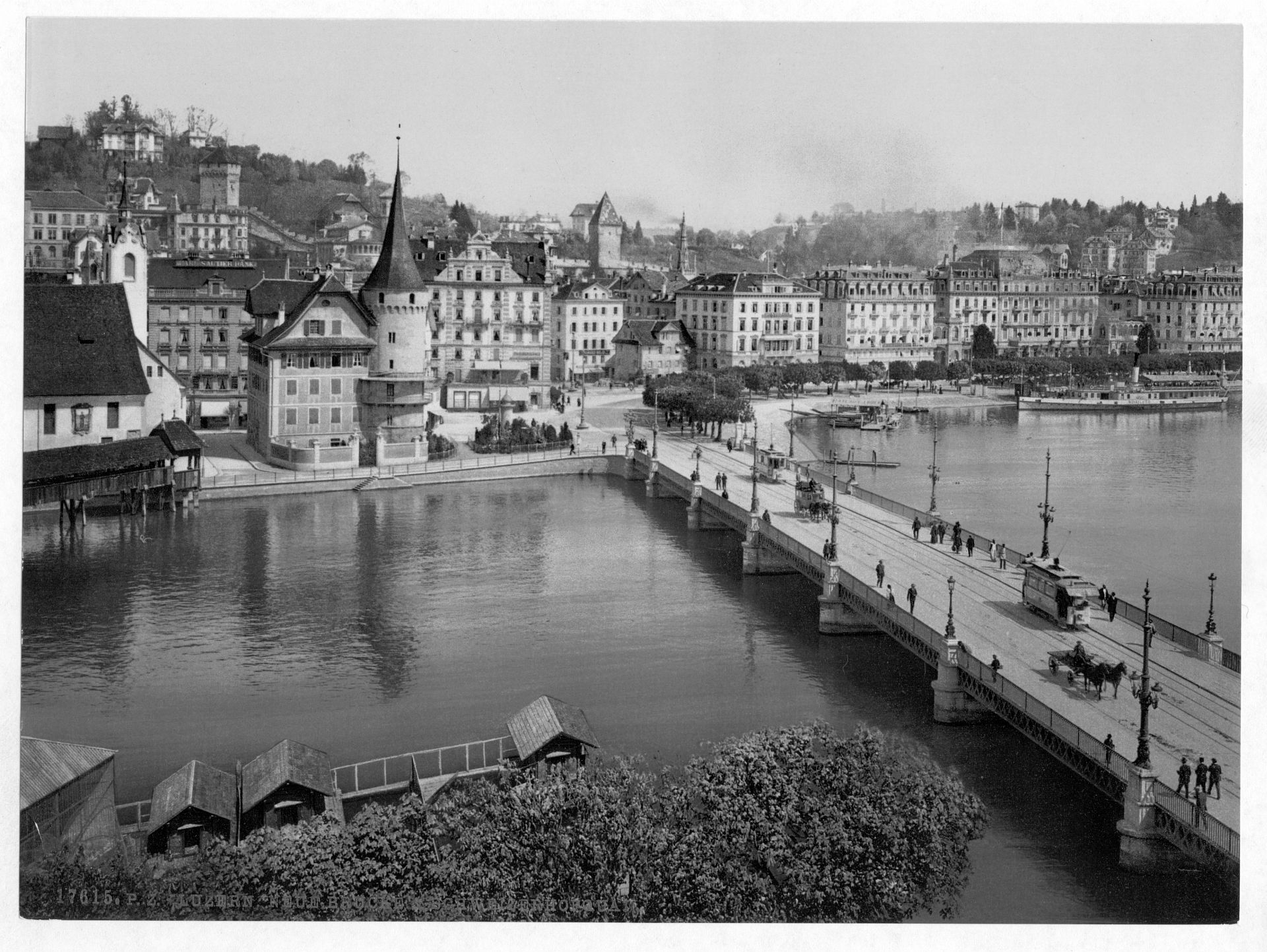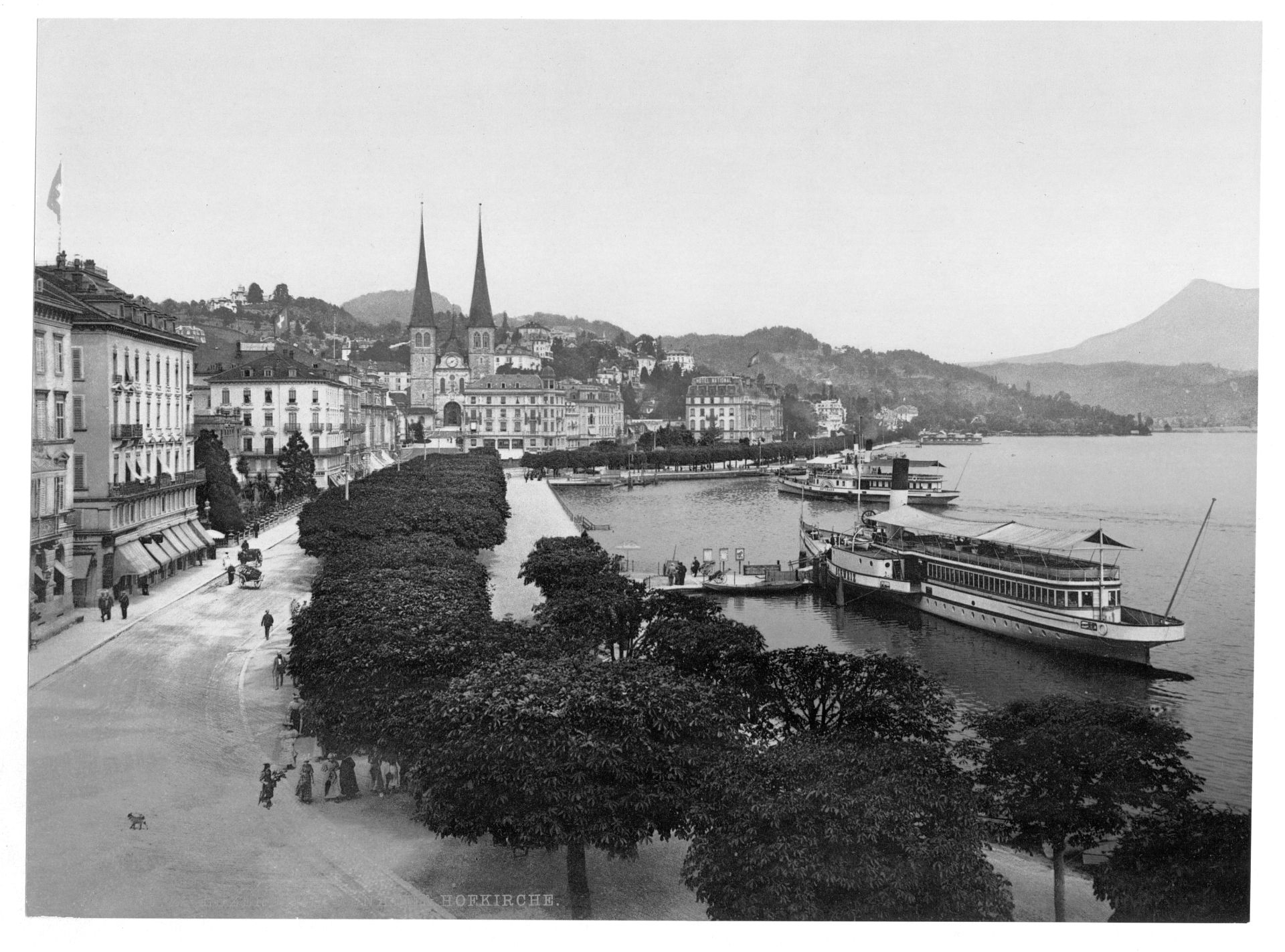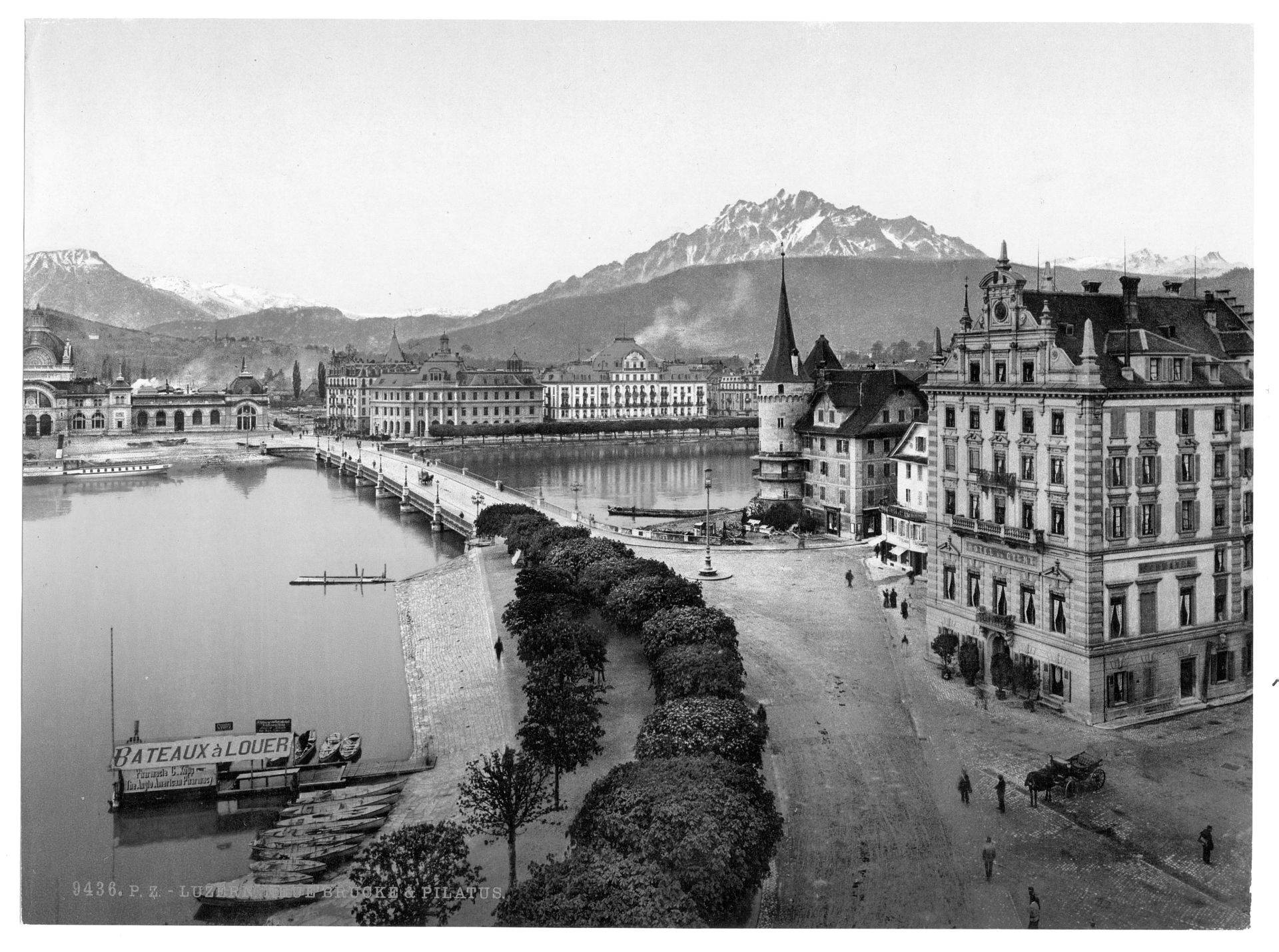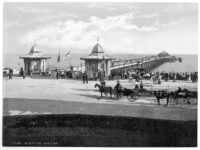It was during the latter part of the 19th century that Lucerne became a popular destination for artists, royalty and others to escape to. The German composer Richard Wagner established a residence at Tribschen in 1866 from which he lived and worked. The city was then boosted by a visit by Queen Victoria to the city in 1868, during which she went sightseeing at the Kapellbrücke and Lion Monument and relished speaking with local people in her native German. The American writer Mark Twain further popularised the city and its environs in his travel writings after visiting twice, in 1878 and 1897. In 1892 Swiss poet and future Nobel Prize laureate Carl Spitteler also established himself in Lucerne, living there until his death in 1924.
Lucerne’s status as a fashionable destination led to it becoming one of the first centres of modern-style tourism. Some of the city’s most recognisable buildings are hotels from this period, such as the Schweizerhof Hotel (1845), Grand Hotel National (1870), and Château Gütsch (1879). It was at the National that Swiss hotelier César Ritz would establish himself as manager between 1878 and 1888.
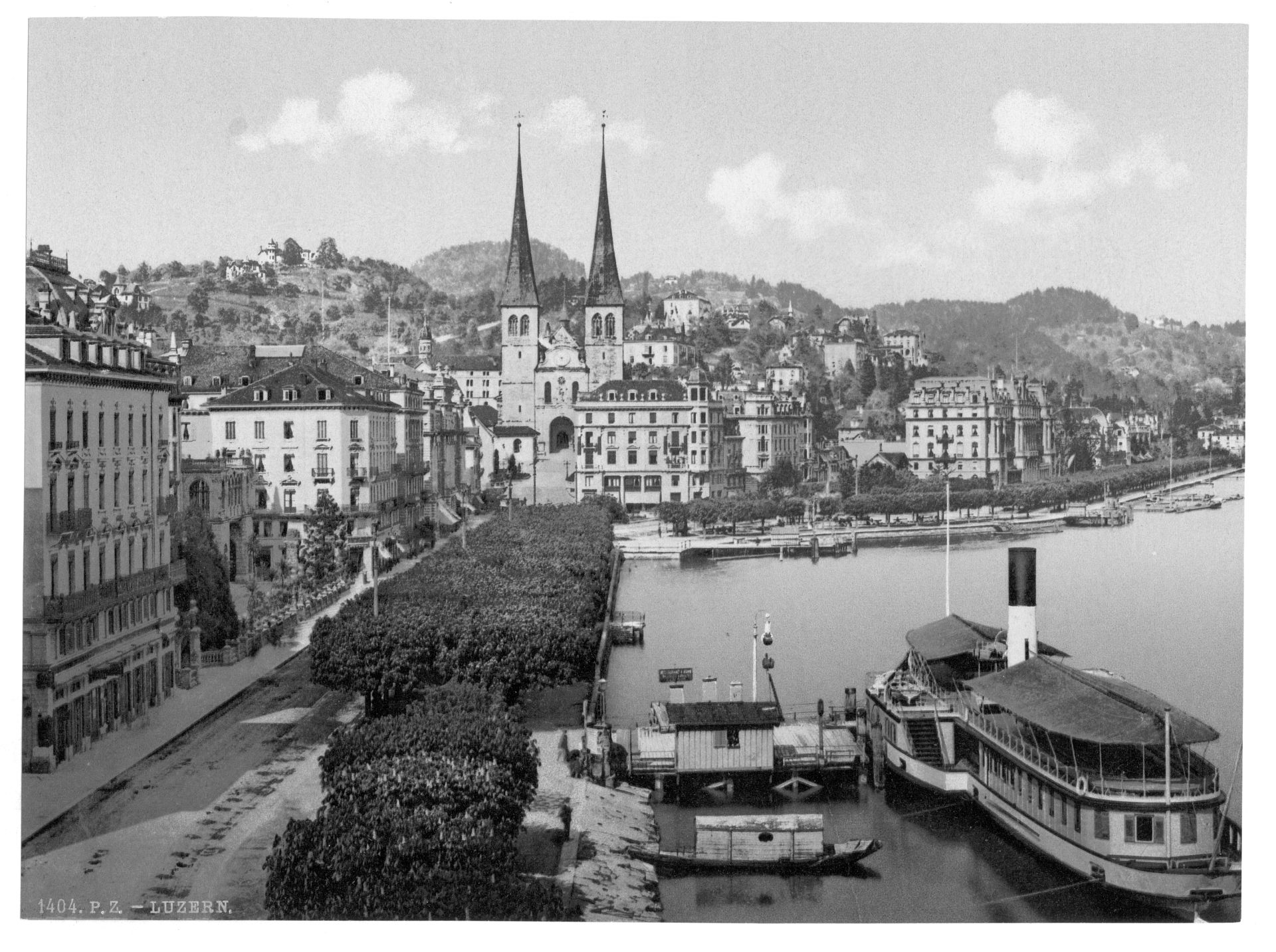
The quay, Hotels Schweizerhof and National and Cathedral from the Swan Hotel, Lucerne, Switzerland (1890s)

